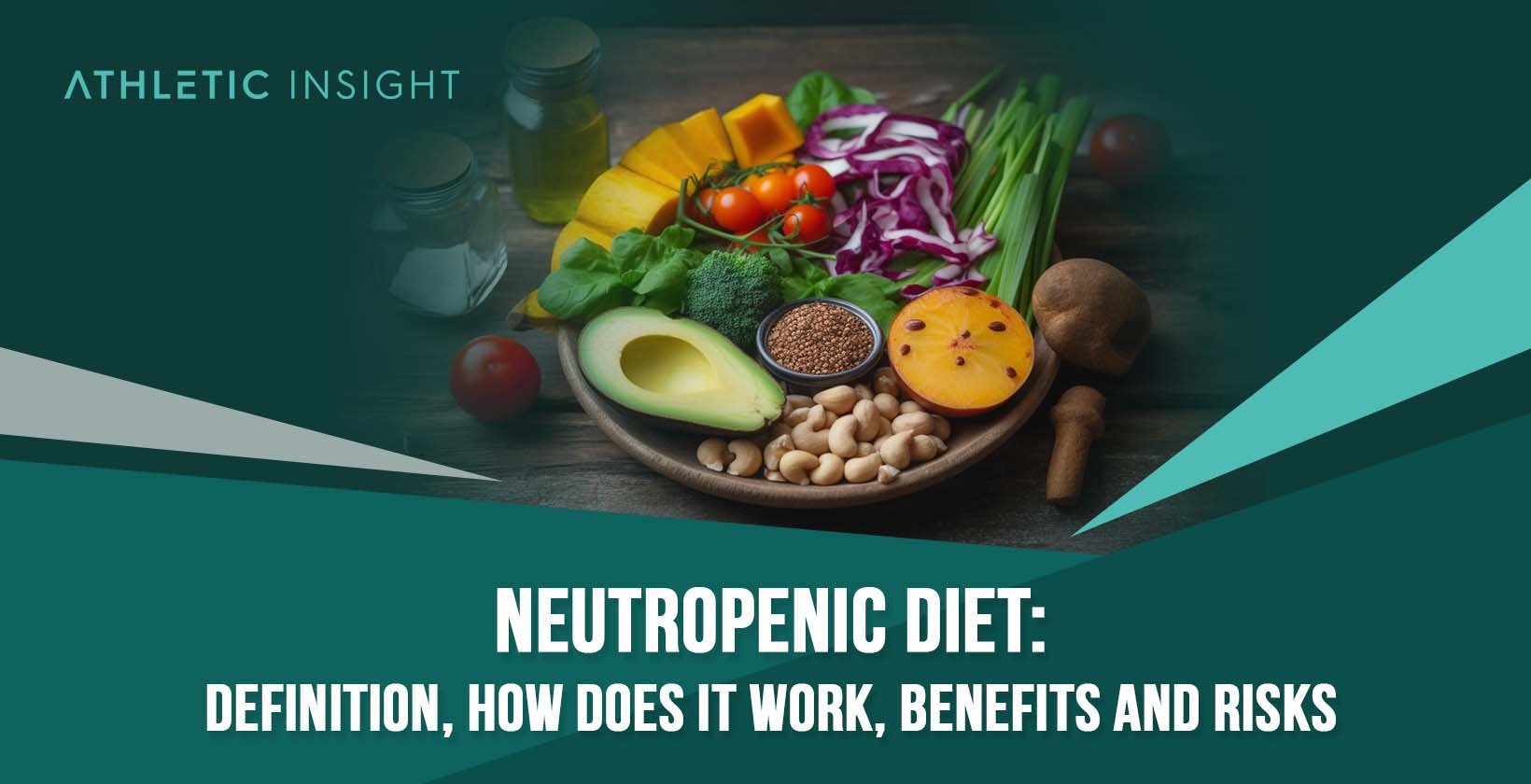The Neutropenic Diet is a specialized dietary regimen designed for individuals with neutropenia, a condition characterized by abnormally low levels of neutrophils, a type of white blood cell. The primary goal of this diet is to reduce the risk of infections while ensuring proper nutrition for patients with compromised immune systems.
What is Neutropenic Diet?
The Neutropenic Diet is a carefully crafted eating plan for individuals with neutropenia, a condition marked by a reduced number of neutrophils, which play a critical role in defending the body against infections. This diet focuses on limiting exposure to harmful bacteria and promoting optimal nutrient intake to bolster the immune system.

How Does Neutropenic Diet Work?
The Neutropenic Diet works by emphasizing the consumption of thoroughly cooked foods, avoiding raw or undercooked items, and implementing strict food safety practices. These measures help minimize the risk of ingesting harmful bacteria or pathogens, which could potentially cause severe infections in individuals with neutropenia.

Who Needs Neutropenic Diet?
Patients with neutropenia, especially those undergoing cancer treatments such as chemotherapy or radiation therapy, require the Neutropenic Diet. The diet aims to lower the risk of infections while ensuring proper nutrient intake in patients with weakened immune systems.
What is Neutropenia?
Neutropenia is a medical condition characterized by abnormally low levels of neutrophils, a type of white blood cell essential for fighting infections. Neutropenia can result from various causes, including cancer treatments, bone marrow disorders, and certain medications.
What is the Cause of Neutropenia?
Neutropenia can arise from several factors, including chemotherapy, radiation therapy, autoimmune disorders, viral infections, and certain genetic conditions. Additionally, some medications, such as immunosuppressive drugs, can also contribute to the development of neutropenia.
How Can Neutropenia be Treated?
Neutropenia treatment depends on the underlying cause and severity of the condition. In some cases, the condition may resolve on its own, while other instances may require medications like granulocyte colony-stimulating factors (G-CSF) to stimulate neutrophil production. In severe cases, a bone marrow transplant may be necessary.
What are the Foods Allowed and Not Allowed for Neutropenic Diet?
Below are the foods that are allowed and prohibited on the neutropenic diet.
| Allowed | Not Allowed |
|---|---|
| Well-cooked meats and fish | Raw or undercooked meats and fish |
| Pasteurized dairy products | Unpasteurized dairy products |
| Cooked vegetables and fruits | Raw or unwashed vegetables and fruits |
| Canned or dried fruits | Unwashed fresh fruits |
| Thoroughly cooked eggs | Raw or undercooked eggs |
| Commercially packaged foods | Foods from salad bars or buffets |
| Well-cooked grains and pasta | Uncooked grains and raw sprouts |
| Pasteurized juices and beverages | Unpasteurized juices and beverages |
What are the Benefits of Neutropenic Diet?
There are five major benefits of the Neutropenic diet, these include; reduced risk of infections, enhanced immune system support, improved overall health and well-being, customizable to individual nutritional needs, promotes food safety and hygiene practices.
- Reduced risk of infections
- Enhanced immune system support
- Improved overall health and well-being
- Customizable to individual nutritional needs
- Promotes food safety and hygiene practices

What are the Risks of Neutropenic Diet?
There are five risks associated with the Neutropenic diet, these include; nutrient deficiencies, limited food choices, challenging to adhere to long-term, difficulty in maintaining social interactions involving food, increased need for careful meal planning and preparation.
- Nutrient deficiencies
- Limited food choices
- Challenging to adhere to long-term
- Difficulty in maintaining social interactions involving food
- Increased need for careful meal planning and preparation
What are the Dietary Restrictions for Neutropenia Patients?
The dietary restrictions for Neutropenia patients are to avoid raw or undercooked foods (meats, fish, eggs), refrain from consuming unpasteurized dairy products, steer clear of raw or unwashed vegetables and fruits, avoid food serving stations (salad bars, buffets, deli counters), opt for well-cooked grains and avoid raw sprouts, eschew unpasteurized juices and beverages.
- Avoid raw or undercooked meats, fish, and eggs
- Refrain from consuming unpasteurized dairy products
- Steer clear of raw or unwashed vegetables and fruits
- Bypass salad bars, buffets, and deli counters
- Opt for well-cooked grains and avoid raw sprouts
- Eschew unpasteurized juices and beverages
How Can You Ensure Adequate Nutrition While Following a Neutropenic Diet?
To guarantee proper nutrition on a Neutropenic Diet, patients should consult with a registered dietitian or nutritionist who can help tailor the diet to their specific needs. This includes monitoring nutrient intake, recommending appropriate food choices, and providing guidance on food safety practices to reduce the risk of infections.
What Role Does a Dietitian Play in Managing a Patient’s Neutropenic Diet Plan?
A dietitian plays an essential role in managing a patient’s Neutropenic Diet plan by assessing their nutritional needs, developing personalized meal plans, ensuring adequate nutrient intake, and providing guidance on food safety and preparation techniques to minimize the risk of infections.
Can a Vegan Diet be Adapted to Meet the Requirements of a Neutropenic Diet?
Yes, a vegan diet can be adapted to meet the requirements of a Neutropenic Diet. However, careful planning and consultation with a dietitian are necessary to ensure proper nutrient intake and adherence to food safety guidelines specific to neutropenia patients.
How Does a Neutropenic Diet Affect Fiber Intake?
A Neutropenic Diet can potentially reduce fiber intake due to the restriction of raw fruits and vegetables. However, patients can still consume adequate amounts of fiber by incorporating well-cooked whole grains, cooked vegetables, and canned or dried fruits into their meal plans under the guidance of a dietitian.
Can a Neutropenic Diet Help Manage Side Effects of Chemotherapy and Radiation Therapy?
Yes, a Neutropenic Diet can help manage the side effects of chemotherapy and radiation therapy by reducing the risk of infections and supporting overall health through proper nutrition. Additionally, the diet can help maintain the patient’s energy levels and promote a sense of well-being during treatment.
Can a Neutropenic Diet Help Improve Survival Rates in Cancer Patients?
While there is no direct evidence to suggest that a Neutropenic Diet alone can improve survival rates in cancer patients, maintaining proper nutrition and minimizing the risk of infections can contribute to better overall health and potentially improve treatment outcomes.
Are Bananas Included in the Neutropenic Diet?
Yes, bananas can be included in the Neutropenic Diet. However, it is essential to ensure that they are thoroughly washed and peeled before consumption to minimize the risk of ingesting harmful bacteria or pathogens.
What is the Difference between Neutropenic Diet and McDougall Diet?
The Neutropenic Diet is designed for individuals with neutropenia, focusing on reducing the risk of infections and promoting proper nutrition. In contrast, the McDougall Diet is a plant-based, low-fat, high-starch eating plan aimed at promoting overall health, weight loss, and the prevention of chronic diseases.
While both diets emphasize the importance of consuming nutrient-dense foods, the Neutropenic Diet has specific restrictions and guidelines tailored to the needs of individuals with compromised immune systems due to neutropenia. On the other hand, the McDougall Diet focuses on general health and wellness for the broader population.



